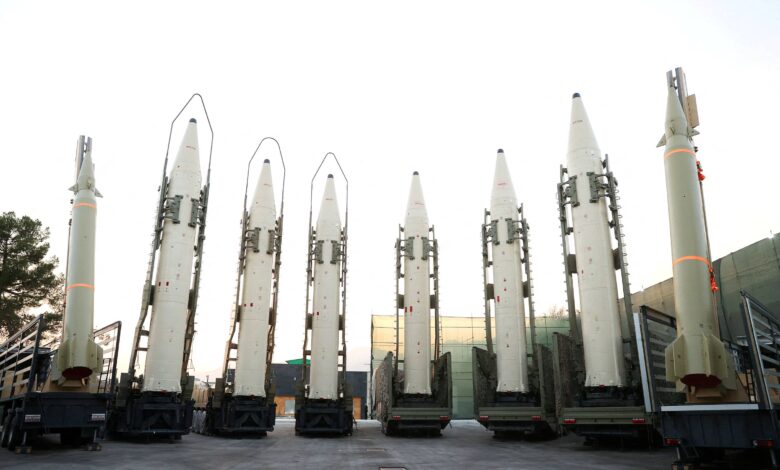
Iran has launched ballistic missiles at Israel, triggering sirens throughout the country, the Israel Defense Forces said. The Orange flames illuminated the night sky in the incident on Tuesday. There were reported sightings of the missiles fired from several locations, including Tyre, Lebanon. Smaller streaks of light were seen-thought to be from Israel’s aerial defense systems trying to intercept the menace.
Video footage showed explosions, but it was not possible to determine if those were the sounds of the missiles hitting each other in mid-air or Iranian missiles hitting targets within Israel. U.S. officials warned earlier on Sunday that Iran was intending to target Israel with a ballistic missile strike, a senior White House official and a Department of Defense representative said.
This attack is the continuation of vast military activities of Israel within Lebanon, including the killing of the political leader of Hezbollah, Hassan Nasrallah, and the invasion in the south of Lebanon. White House official: “The United States has indications that Iran is preparing to launch a ballistic missile attack against Israel imminently. We are actively supporting defensive preparations to protect Israel from this attack. A direct military strike from Iran will have severe consequences for the nation.
U.S. officials say Iran’s targets will more than likely be military and government sites rather than civilian areas. A potential missile strike could include more firepower than Iran’s previous attack in April, which included hundreds of drones and ballistic missiles launched across a multi-hour period. This time, the number of ballistic missiles is expected to be higher, with Iran perhaps attempting to launch several missiles at once in an attempt to saturate the defenses.
There is also uncertainty over whether such missiles would be fired directly from Iran or its proxy militias in the region. U.S. officials similarly remain unclear whether allies in the region would help defend Israel or grant permission for overflights to intercept the incoming projectiles.
The Iranian Permanent Mission to the United Nations did not comment on the purported imminent attack. U.S. intelligence officials had expected a reaction from Iran in the wake of recent strikes by Israel against Hezbollah leadership, seen to undermine Iran’s regional influence significantly.
President Joe Biden has been kept abreast of the development, being informed of the imminent attack by Iran on Israel. White House Spokesman Emilie Simons spoke to the media, confirming the meeting between Biden and Vice President Kamala Harris with the national security team to discuss the threat and review preparations to defend Israel and protect U.S. personnel.
But while U.S. officials believe Iran is signaling a desire to avoid a broader conflict, Iran’s new President, Masoud Pezeshkian, told the United Nations General Assembly last week that his country was seeking peace and had no desire for war with Israel. He blamed Israel, he said, as the force escalating regional tensions.
The last major Iranian attack against Israel was in April, after a significant build-up and in response to a strike against an Iranian consular building in Damascus, Syria. This past attack took almost two weeks to carry out during which time its defense could be prepared.
By contrast, an Iran-launched ballistic missile could reach Israel in as little as 10 minutes. Tensions in the region have heightened since the October 8 start of Hezbollah’s firing into Israel in support of Hamas, which has clashed with Israel since the October 7 terrorist attack that left 1,200 dead.
Israel has targeted numerous senior Hezbollah leaders in recent weeks, including Nasrallah, adding to instability within what was once considered Iran’s most powerful proxy militia. Hezbollah was born in the 1980s out of resistance against Israel’s occupation of southern Lebanon, promising allegiance to Iranian Supreme Leader Ali Khamenei and fighting for Lebanese self-determination.
Hours before word of Iran’s missile strike, Israel said it was conducting a ground invasion of southern Lebanon, with the IDF carrying out pinpoint operations in villages along the border. There have been questions about how limited such operations were, given past occurrences where that description heralded wider military campaigns.
The Israeli military, through its spokesperson, Nadav Shoshani, however, dismissed any ground operation in Beirut as “not on the table,” trying to reassure that what is currently happening is “localized and targeted, based on precise intelligence in areas near the border.”



